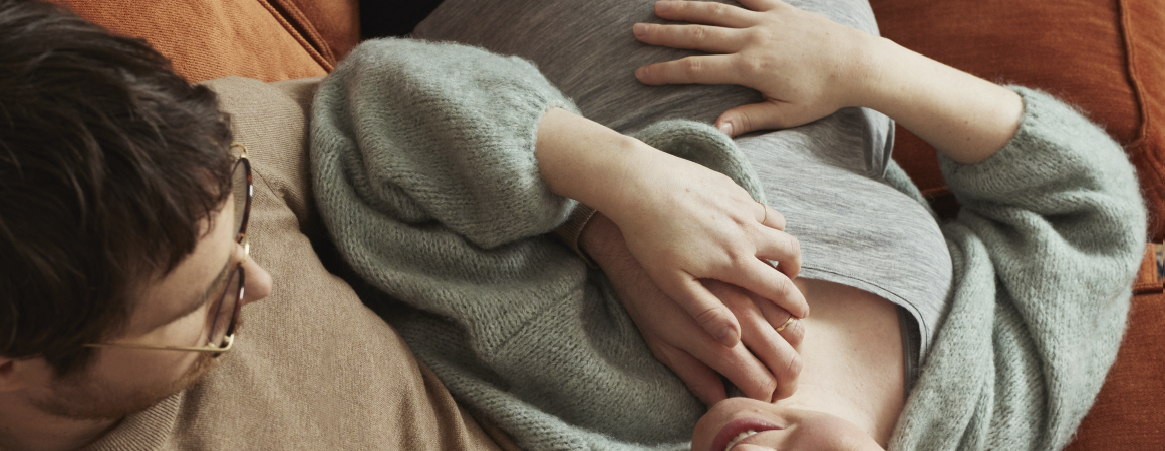
Bonding with your baby during pregnancy
The bond between parent and child is an important psychological connection that is deeply rooted in the human psyche. This bond is crucial to a baby's survival.
A child's innate bonding skills arouse the parents' protective instincts and motivate them to care for the child in every possible way, both physically and psychologically.
The bonding process can be described as an essential safety system for the baby. In order to protect the child and meet its needs, you must be able to interpret its signals. For this reason, an important part of early parenthood is being emotionally open and sensitive to the baby's signals.
The bond between parent and child is established during pregnancy
Because this bond is so important, most parents-to-be start developing it while the baby is still in the womb. Connecting with the baby in the womb prepares you emotionally for the first moments after giving birth.
While the baby is still in the womb, the parents-to-be are already thinking about parenthood and what it will be like to meet their baby. They usually do this unconsciously. We fantasise about the child we are expecting and may visualise it as several months old, or even up to two years old. We imagine the child having inner and outer attributes according to our preferences and prior experience.
These mental images and thoughts increase after we feel the baby's first movements
When the baby moves in the womb, the bonding process really gets going and the child seems more real to us. It's natural to focus on what's going on inside there. We interpret the baby's daily rhythms and movement patterns, and may perceive them as strong or cautious.
Once we are familiar with the baby's movement patterns, we start imagining their temperament and budding personality. For example:
"This little lady has tremendous energy and is never still. She moves 24 hours a day, so just imagine what it will be like when she comes out!"
The more personalised the baby becomes in the womb, the stronger the bond grows
Parents gradually start to recognise the unborn baby's characteristics and habits
"She's so lively late in the evenings, a real night owl. That's great because I'm a night owl too. We'll have lovely evenings together when she's older.”
We start communicating directly with the baby now too. We speak to it, either aloud or in our thoughts. We might make little comments like, "Darling, stop kicking. I need to sleep," or share feelings like, "If only you knew how happy I am to have you here."
Our thoughts about the child are emotionally charged and usually provoke joyful and protective feelings
These are important building blocks in the bonding process and help us prepare for parenthood. We are aware of the baby's comfort throughout the pregnancy. When it moves, we imagine what it might be like in there, and we notice any changes.
Signs that the baby might be uncomfortable cause us worry and concern, and we want to understand and help. We notice what foods and activities seem to upset the baby and try to avoid them. Caring for the baby's well-being in the womb is an important part of the bonding process. As the due date approaches, the fantasies fade and we become completely focused on the idea of giving birth.
When the baby is born, the parenting process continues in interaction with the child
Our thoughts and ideas about the baby were important in preparing us to meet our newborn baby. They helped us lay the foundation of our relationship with our child. Although we haven't yet met the baby, we already feel familiar with it, which helps us give it the love and care it needs. When the child is born, the fantasies about the new child start up again and we continue developing as parents in symbiosis with the child.
Margareta Brodén
Child psychologist


